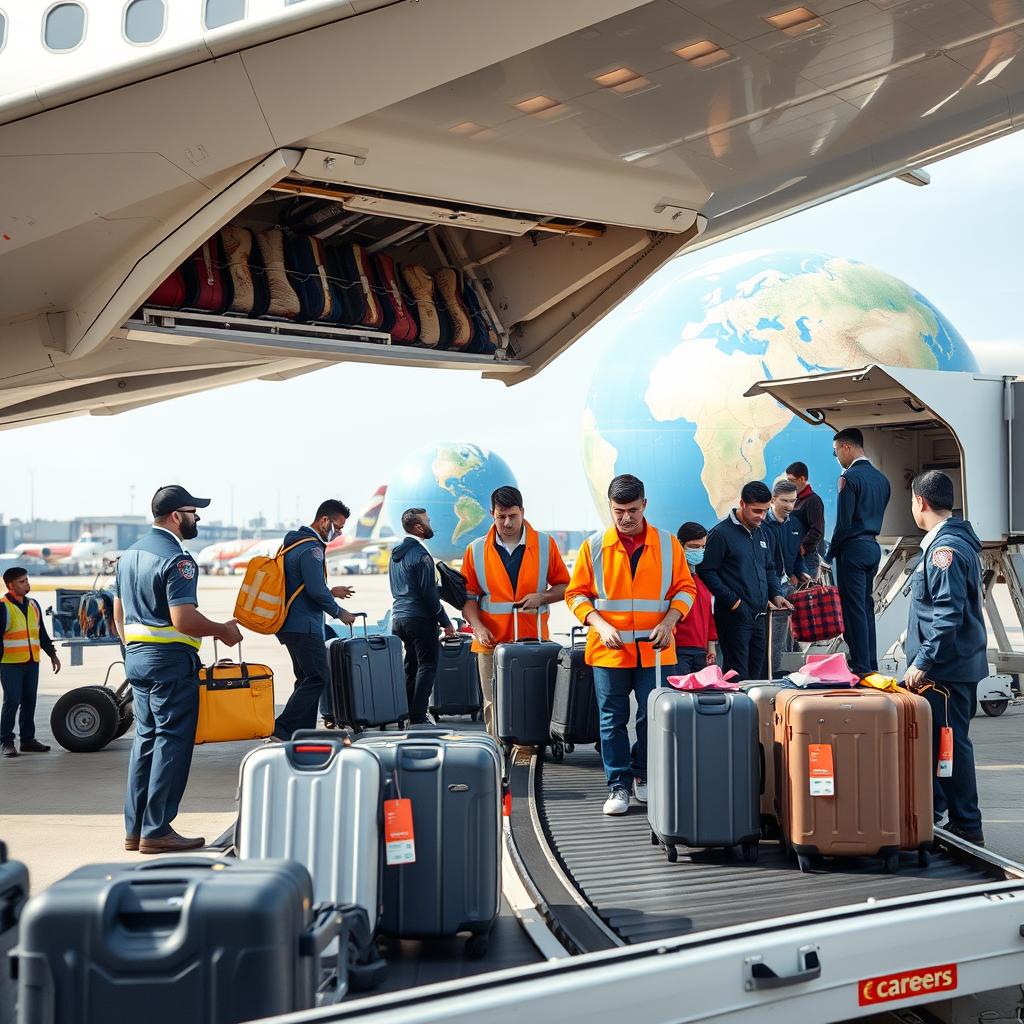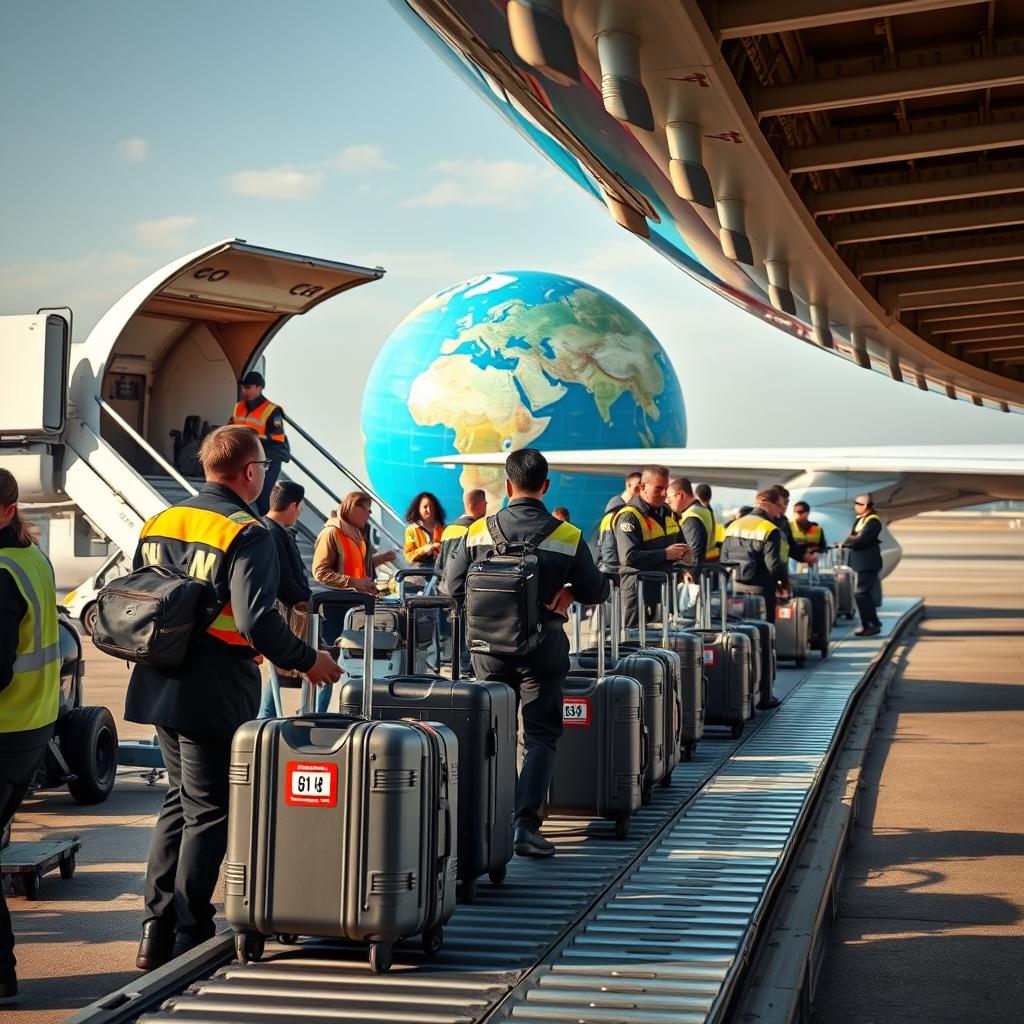Baggage handling is a globe-spanning occupation that ranges from seasonal ramp jobs to full-time aviation careers. Demand for handlers grows with air traffic: IATA projects passenger numbers to rise over 10% in 2025 (iata.org), implying steady job needs. Yet conditions vary by country. In the United States, a baggage handler (often called a “ramp agent” or “skycap”) earns about $35,800 per year on average (roughly $17 per hour) (erieri.com). The range is wide – ERI reports an annual band from about $27,400 up to $41,300 for U.S. roles (erieri.com). In New York or Los Angeles, a ramp job may start near the lower end and rise with experience or union scales.
Across the Pacific in Singapore, handlers earn roughly S$3,186 per month (about USD 2,300) (sg.indeed.com). In Europe, pay is similar on a purchasing-power basis: in the UK, new baggage handlers start around £21,000 per year, rising to about £28,000 with experience (nationalcareers.service.gov.uk). In India, the disparity is starker: surveys show ₹232,960–351,110 annually (roughly US$3,000–4,500) (erieri.com), reflecting a much lower wage market. Thus a handler in Mumbai or Delhi works for a fraction of what a colleague in Toronto earns, even though the workload and safety issues are comparably strenuous. In many developing countries, baggage work is often done under contract by service companies, and pay can be just above the minimum wage. By contrast, major airports in affluent nations have union-negotiated wages and benefits; for example, members of the Teamsters union at U.S. airlines may earn close to $20–$25 hourly plus overtime.

Education and training requirements are relatively low. Most handlers enter with only a high school diploma (or local equivalent) or via vocational training. In the UK, official career guides note there are “no set entry requirements,” though GCSEs in English and Math help, and many handlers qualify through apprenticeships (nationalcareers.service.gov.uk). Apprenticeships (common in the UK, Australia and some parts of Europe) provide classroom work plus on-the-job training over 1–2 years (nationalcareers.service.gov.uk). In the U.S., airlines typically offer on-site training for new hires, covering baggage tracking systems, safety, and customer service; formal education is rarely needed. Many companies now include modules on hazardous materials (so handlers know what to look for) and use of mechanical equipment (like belt loaders).
The career outlook is stable but not booming. As airlines automate more processes (see R&D article), some routine tasks may diminish. However, airports continue hiring because baggage must still be loaded, unloaded, and recirculated. Moreover, airports often rotate personnel through various roles (ticket counters, gate support, cargo operations), so beginning as a baggage handler can be a stepping stone. Skills gained – forklift operation, radio communication, teamwork – are transferable. Some handlers move up to become ramp supervisors, training coordinators, or transition into airline dispatch or customer-service roles. Airlines and ground firms occasionally sponsor education (e.g. safety certification or English language) to encourage this career mobility.
Despite its physical demands, many handlers appreciate the perks. Travel benefits (free or discounted flights) often extend to ramp crews, making the salary more palatable. Shift work (nights, weekends) is common, and handlers are often unionized in places like North America and Europe, ensuring health coverage and pensions. In emerging markets, unions and NGOs are beginning to press for better wages and conditions – for example, a recent California law mandate will require airlines there to cover medical exams and travel vaccinations for ground staff.
Across continents, baggage handling remains a critical, if underappreciated, career. Those who choose it must meet physical requirements and enjoy teamwork under tight time constraints. Universities of labour and aviation training centres may not offer degrees in baggage handling, but the profession’s global nature means handlers can find opportunities in every major airport from Singapore to São Paulo. As one long-time handler quips, “Your office changes every few hours – from Honolulu to Heathrow – so if you like moving, it’s a pretty good gig.”


